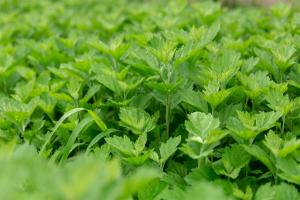Is Tap Water OK for Plants?
Many people wonder whether tap water is suitable for watering their beloved plants. Some argue that the chemicals in tap water can harm plants, while others believe that using tap water is cost-effective and perfectly safe. In this article, we'll take a closer look at the topic and provide you with all the information you need to make an informed decision.
The Pros and Cons of Using Tap Water on Plants
Let's start by exploring the advantages of using tap water to water your plants. The most significant benefit is the convenience of it. You don't need to worry about going out and buying purified water, which can be costly and time-consuming. Additionally, tap water is readily available in most households and is easily accessible. Another advantage of tap water is that it contains minerals that are essential for plants' growth and survival.
However, there are also some downsides to using tap water on plants. One of the most significant issues is the chemicals in tap water. In some areas, tap water may contain chlorine, fluoride, and other chemicals that can be harmful to plants. Chlorine, which is commonly used to disinfect municipal water supplies, can kill beneficial soil microbes and damage the plant's root system. Fluoride can also accumulate in the soil and damage plants over time. The minerals in tap water can also build up over time and cause soil dehydration or nutrient deficiencies.
How to Make Tap Water Safe for Plants
If you want to use tap water to water your plants, there are several things you can do to make it safe for them. The first thing you can do is to allow the tap water to sit for 24 hours before using it. This will allow any chlorine or other chemicals to dissipate. You can also water plants with lukewarm water instead of cold water, which can shock the roots and damage the plant. Additionally, you can use a filtration system to remove any harmful chemicals from the tap water.
If you're still unsure about using tap water on your plants, there are alternative options you can explore. Rainwater or distilled water is free of chemicals and can be a great alternative. However, collecting rainwater and distilling water can be time-consuming and require special equipment.
Conclusion
In conclusion, using tap water on your plants can be safe and cost-effective if done correctly. Understanding the potential downsides of tap water and taking steps to mitigate them is essential. By using the tips we've outlined in this article, you can ensure that your plants remain healthy and thrive, whether you're using tap water, rainwater, or distilled water.

 how many times do yo...
how many times do yo... how many planted tre...
how many planted tre... how many pine trees ...
how many pine trees ... how many pecan trees...
how many pecan trees... how many plants comp...
how many plants comp... how many plants can ...
how many plants can ... how many plants and ...
how many plants and ... how many pepper plan...
how many pepper plan...































